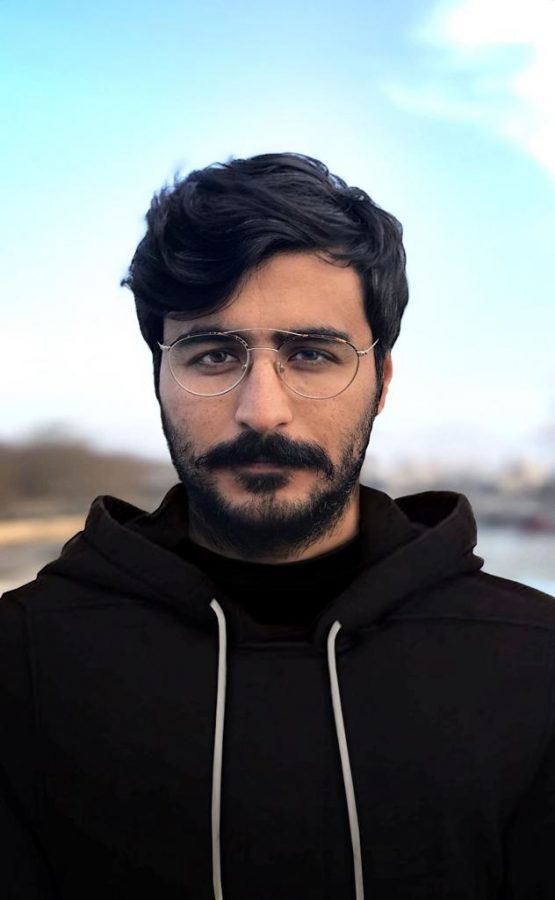When Turkish immigrant Cenk Ertürk first set foot in the United States, he came with a dream of being a filmmaker despite having no formal education in the craft. Little did he know that years later, his feature film debut “Noah Land” would premiere at the prestigious Tribeca Film Festival and open up avenues to success that extended beyond his wildest dreams.
The filmmaker grew up in an artistic household despite both his parents being government officers. His parents were artistically inclined but never had the chance to realize the passion in their childhoods. They would encourage Ertürk to take part in art, whether it was writing poetry or stories. He studied economics in Turkey and later came to America to pursue his current career path.
“I was an assistant at a film festival [in Los Angeles],” Ertürk said. “I started studying English, and then I applied to film schools.”
Ertürk was accepted into three of his dream schools but ultimately chose Tisch because of its list of accomplished alumni and how prestigious the MFA program is.
Before making the feature, he started writing the short film version of “Noah Land” his second year, which Ertürk says was the most important year because the films he and his classmates made that year were considered the starting point for their film careers.
Both the short and feature film focus on Ömer (Ali Atay) driving his terminally ill father Ibrahim (Haluk Bilginer) to the rural Turkish village in which Ibrahim was raised. It is quickly revealed that Ibrahim specifically made this request so that he could be buried beneath the tree he planted as a boy, but the tree has become a holy site called the Noah Tree. As Ibrahim fights to regain ownership of the land, Ömer struggles to help his father through simmering grievances.
Ertürk actually went to Turkey to shoot the short film and initially cast his own father in the role of Ibrahim. Ertürk describes himself and his father as best friends, which makes for an interesting contrast because the fictional son and father harbor an especially contentious relationship that is worsened by miscommunication — or rather, a lack of communication at all.
After making the short film, Ertürk submitted it to the First Run Film Festival at Tisch. His team won a Wasserman Award and Ertürk became more confident about showing the film to investors and producers to get financial backing. He also received a support letter from Academy Award-nominated director Darren Aronofsky, who was teaching at NYU at the time. Another NYU connection was that of cinematographer Federico Cesca, who had helped shoot another second year film. At a screening, Ertürk connected with him and got him hooked on the project.
Ertürk was accepted to the Cinéfondation at Cannes Film Festival, where he spent months in residence developing the feature screenplay. The residence welcomes a dozen young foreign directors to develop their first or second feature film.
When turning the film into a feature, Ertürk used the extra space to expand the world of the village, especially with the role of women, since Ömer’s ex-wife and mother are barely mentioned in the short film.
“The representation of the women on the screen [in Turkey] is problematic, and I was trying to avoid it,” Ertürk said. “I wanted my film to be a sincere statement about women’s representation.”
Certainly one of the most stirring scenes in the film is when Ömer’s ex-wife Elif (Hande Dogandemir) visits and shows up pregnant with his child. The interaction is long, stark and slowly escalates, but it is a testament to Ertürk’s sharp direction that the scene is able to feel so heartbreaking, even with the slow burn.
Another scene — and my personal favorite in the film — is a fight scene centered around Noah Tree. At one point in the film, Ömer decides to burn down the tree but is ambushed by its strict worshippers. The entire scene is a one-take wide shot of the tree wherein Ömer and his opponents are all seen as silhouettes against the sunrise.
Ertürk said that shooting the scene was perhaps the most memorable day on set.
“We were rehearsing the scene, then I decided to shoot the scene,” Ertürk said. “The rehearsal is in the film. [Atay] fell on the ground, and just because he fell, I was so scared and I was leaving the monitor, but somebody held me from behind. The son stood up, he kept fighting.”
The crew only found out after filming the take that Atay had broken his rib with three days of production left.
The journey to completing “Noah Land” — and for Ertürk, completing it twice — was an emotional, and in some cases, arduous one. When it came time to start submitting to festivals, Ertürk was ecstatic to find out the film was accepted into Tribeca. Though the team got into other festivals, Ertürk felt special going to Tribeca because of how passionate and communicative the programmers were with him.
“I wrote this film in this neighborhood, and we are premiering it in [the same] neighborhood,” Ertürk said.
Email Guru Ramanathan at [email protected].


























































































































































